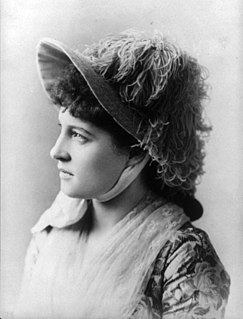A Quote by Lillie Langtry
Related Quotes
If, nevertheless, textbooks of pharmacology legitimately contain a chapter on drug abuse and drug addiction, then, by the same token, textbooks of gynecology and urology should contain a chapter on prostitution; textbooks of physiology, a chapter on perversion; textbooks of genetics, a chapter on the racial inferiority of Jews and Negroes.
If Mother Culture were to give an account of human history using these terms, it would go something like this: ' The Leavers were chapter one of human history -- a long and uneventful chapter. Their chapter of human history ended about ten thousand years ago with the birth of agriculture in the Near East. This event marked the beginning of chapter two, the chapter of the Takers. It's true there are still Leavers living in the world, but these are anachronisms, fossils -- people living in the past, people who just don't realize that their chapter of human history is over. '
At the beginning of each chapter, a heading tells us about what is happening in the chapter. We can ask, "What was going on here? What was this person feeling?" When we take time to look more closely at the scriptures, we can better understand what they can teach us. This will build our self-confidence and our testimony.
There are several studies done of peasant uprisings where the first chapter might be 'conditions in that area' and so the conditions are bad, and then the second chapter is a kind of conjectural event, somebody's shot and then there's an uprising. But there's no consideration, no chapter on preparation.




































